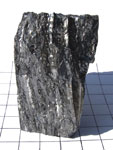 Iran Focus: London, May 09 – The British government sanctioned the transfer of a “dual-use” substance to Iran, which then used the rare metal in nuclear weapons research, Iran Focus has learnt.
Iran Focus: London, May 09 – The British government sanctioned the transfer of a “dual-use” substance to Iran, which then used the rare metal in nuclear weapons research, Iran Focus has learnt.
Iran Focus
 London, May 09 – The British government sanctioned the transfer of a “dual-use” substance to Iran, which then used the rare metal in nuclear weapons research, Iran Focus has learnt.
London, May 09 – The British government sanctioned the transfer of a “dual-use” substance to Iran, which then used the rare metal in nuclear weapons research, Iran Focus has learnt.
Opposition sources have told Iran Focus that in 2002 the Ministry of Defence bought a quantity of the element Beryllium, which can be used in nuclear bomb triggers, claiming it was for civilian research by the physics faculty of the Elm-va-Sanat University (University of Science and Technology) in Tehran.
The cover of a university research faculty made it unnecessary to alert the International Atomic Energy Agency.
The university had a department called the “Applied Physics Institute,” which worked closely with a military centre in Tehran’s Lavizan-Shian park. Other staff and students at the university were barred from entering the faculty’s physics institute.
Iran has repeatedly used the University of Science and Technology as a cover for purchasing and researching on “dual use” items that the UN Security Council has barred it from obtaining over fears that they may be used to produce nuclear weapons.
The opposition National Council of Resistance of Iran exposed the Lavizan-Shian centre in 2003, and soon commercial satellite photographs became widely available. In 2004, the U.S. State Department said Iran had demolished the entire site and removed its topsoil. The Tehran municipality claimed that it had allocated the land for a children’s playground.
After the site was exposed, some of its activities were taken over by the University of Science and Technology. This ended in 2004 when other students and professors complained of the Applied Physics Institute’s activities.
Thereafter, nuclear scientists are believed to have stepped up weapons research in Tehran’s Malek Ashtar University, affiliated to the Ministry of Defence.
Nuclear scientist Shahram Amiri, who defected from the regime during a pilgrimage to Mecca last summer, is believed to have worked at both the University of Science and Technology and Malek Ashtar University and has key intelligence about research conducted at both sites.
The issue about the Beryllium sale was raised at the time in Britain’s House of Commons, but the Foreign Office in London rejected the possibility that the metal would be used in Iran’s nuclear weapons projects.
Foreign Office Minister Mike O’Brien in November 2002 told Parliament members: “We continue to believe that the export of less than half an ounce of beryllium to the University of Science and Technology in Tehran is not of concern with respect to use in weapons of mass destruction and that the end-use stated in the original export licence application was legitimate. In these circumstances we have considered end-use monitoring not to be necessary for this export”.
But opposition sources have told Iran Focus that the Beryllium was definitely for military research and that the institute which purchased it was a cover for the Ministry of Defence. Eventually the Beryllium was given to the Revolutionary Guards along with Polonium 210 to be used in building a nuclear bomb trigger.
Beryllium is found naturally only combined with other elements in minerals. It is a strong, lightweight brittle metal with a high melting point of about 1278 °C. It is ideal as a hardening agent in alloys such as beryllium copper. But it can also be used in the building of a trigger for an atomic bomb.
Opposition sources also allege that at about the same time as the transfer of Beryllium, Iran’s Defence Ministry secretly bought powerful laser devices from Ukraine, again using the cover of the University of Science and Technology.


